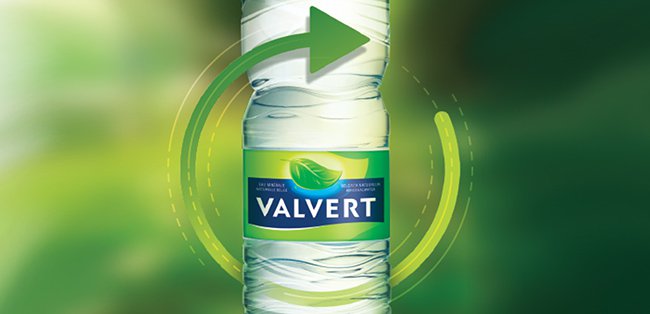Nestlé Waters’ Belgian natural mineral water brand Valvert has introduced a new 100% recyclable plastic bottle, as part of its commitment to promote sustainability.

Image: Valvert has introduced new recyclable plastic bottle. Photo: courtesy of Nestlé.
The new bottle, which is made completely from recycled plastic (rPET), is the first sustainable bottle for Valvert and European first for Nestlé Waters.
Valvert’s new bottle will be marketed across retail stores this month in Belgium and Luxembourg.
Nestlé Waters said that the launch of the new sustainable bottle is part of the strategy to make its packaging 100% reusable or recyclable by 2025, as well as significant step in its approach to tackle packaging waste and protect water resources.
Nestlé has already collaborated with local farmers and communities for the protection of natural mineral water source around its bottling facility in Etalle.
Nestlé Waters Benelux director Emmanuel Gruffat said: “We believe the new Valvert 100% rPET bottle is a gamechanger in the next generation of sustainable packaging, by limiting PET bottle production from virgin PET, and stimulating a bottle-to-bottle circular economy.
“At the same time, we also continue to take our responsibility in further improving our collection and recycling rates in Belgium. That is why last year, Nestlé pledged with 8 members of Fevia (the Federation of the Belgian food industry), to collect and recycle 90% of all drink packaging in Belgium by 2022, including other measures”
In January this year, Nestlé announced that it will phase out all plastics, which are not recyclable or hard to recycle for all its products worldwide between 2020 and 2025.
Nestlé laid out its vision to achieve a waste-free future and unveiled a series of measures towards meeting its April 2018 commitment to make 100% of its packaging recyclable or reusable by 2025.
With the main focus on eliminating plastic-waste, the company intends to address multifaceted issue of plastic pollution through specific actions such as development of alternative materials for waste-free future.
In 2018, Nestlé announced the establishment of Institute of Packaging Sciences to assess and develop different sustainable packaging materials, as well as to collaborate with industrial partners to develop new packaging materials and solutions.
